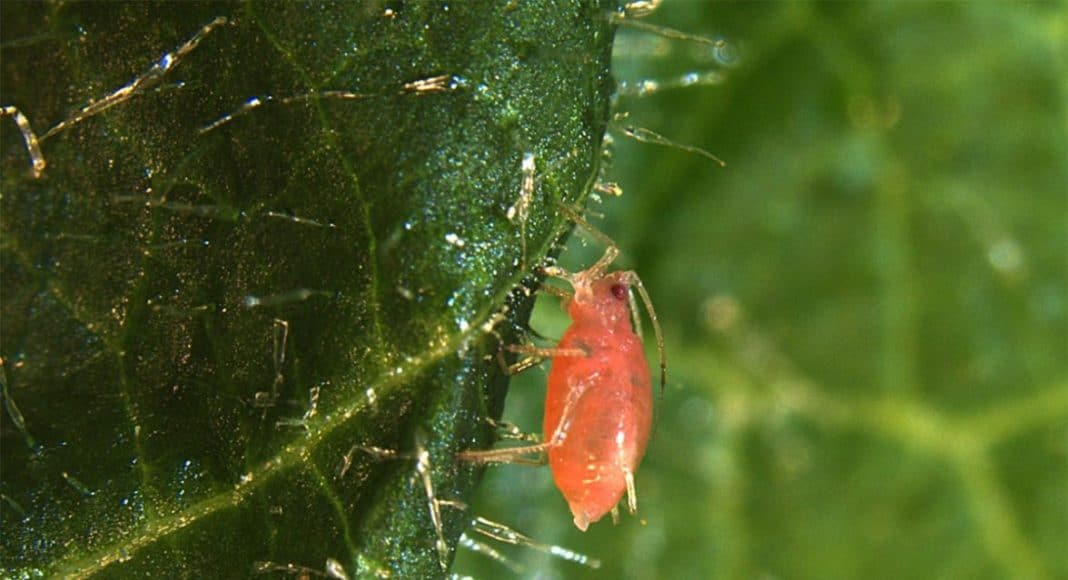By Aaron J. Bouchie
Aphids and the plant viruses they transmit cause billions of dollars in crop damage around the world every year. A Cornell-led research team is examining the relationship at the molecular level, which could lead to new methods for controlling the pests.
A group led by Michelle Heck, research molecular biologist at the USDA Agricultural Research Service (USDA-ARS) and Boyce Thompson Institute, used recently developed small RNA sequencing techniques to better understand how plant viruses interact with aphids. And in an unanticipated discovery, Heck and her team uncovered what may be the first example of a plant virus and an insect virus cooperating to increase the likelihood that both viruses will spread in their plant and aphid hosts.
The work, “Plant Viruses Transmitted in Two Different Modes Produce Differing Effects on Small RNA-Mediated Processes in Their Aphid Vector,” was published in March in Phytobiomes.
Heck, also an associate professor in the School of Integrative Plant Science in the College of Agriculture and Life Sciences, and her team focused on the green peach aphid (Myzus persicae), which transmits more than 100 plant viruses and feeds on a variety of crops, including peaches, tomatoes, potatoes, cabbage and corn.
Potato leafroll virus (PLRV) is of particular concern, as it can reduce potato yield by more than 50%, causing 20 million tons of global yield losses annually.
“The most interesting finding of this research is that PLRV suppressed the aphid’s immune system, and this suppression was mediated by a single virus protein, the P0 protein,” said co-first author Jennifer Wilson, a Ph.D. student and member of Heck’s lab.
P0 is a PLRV protein that is expressed inside plant tissue but not inside the aphids. While P0 had been previously shown to suppress plants’ immune systems, the protein’s impact on the insect’s immune system was a surprise to the researchers.
“We don’t know if the aphids ingest P0 from the plant or not, but we do know that when P0 is present in the plant, the aphids’ immune systems are suppressed,” Wilson said.
One critical result of the insect’s immune system being hampered is an increase in the proliferation of an insect virus, Myzus persicae densovirus(MpDNV). The researchers also found that aphids with more copies of MpDNV were more likely to have wings.
Because green peach aphids rarely have wings until the weather turns colder in the fall, this increase in winged insects could mean increased spread of PLRV and MpDNV to new hosts all summer long, a synergistic effect that would happen less if the aphids were infected with only one of the viruses.
“We think we have found the first example of cooperation between a plant virus and an insect virus,” Wilson said. “This cooperation may lead to increased transmission of both viruses.”
Wilson and Heck are working to test this hypothesis by repeating the experiments in aphids not infected with MpDNV, which Wilson collected last summer from farms in upstate New York. Future work could include figuring out how MpDNV and the P0 protein could be used to control virus transmission by aphids.
“Developing strategies to block virus transmission in the field is a major goal of our research program,” Heck said.
Researchers from BTI, Cornell and the USDA-ARS collaborated on this study, which was supported by grants from the National Science Foundation and the USDA.
Aaron J. Bouchie is a science writer for the Boyce Thompson Institute.











